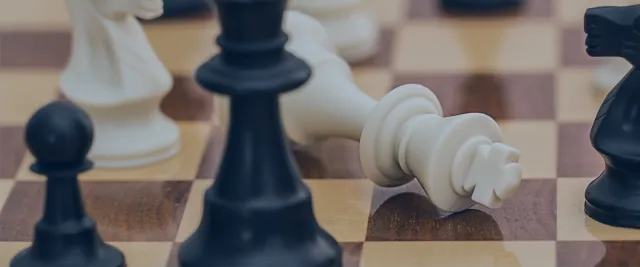The Geneva Centre for Security Policy podcast is your gateway to top conversations on international peace and security. It will bring you timely, relevant analysis from across the globe with over 1,000 multi-disciplinary experts speaking at 120 events and 80 courses every year. Click subscribe, download on your favourite podcast player, get notified each time we release our weekly episode.
Podcast Episode 9
Host: Hello, my name is Claire Heffron, and welcome to the Geneva Centre for Security Policy podcast on the latest issues, advancing peace, security and international cooperation. In a world of disruption that is far from ending, a new world order is emerging, reshaping the global economy and shifting geopolitical powers.
Host: We spoke to the GCSP’s Foundation Council President, Ambassador Jean-David Levitte, about how Europe needs to adjust if it wants to be an influential force alongside emerging powers.
Host: As cyber threats to global security are becoming more frequent, complex and destructive, what is NATO's role in cyberspace. We discussed this issue with Antonio Missiroli, NATO's Assistant Secretary General for Emerging Security Challenges.
Host: Ambassador Jean-David Levitte has had a distinguished and outstanding career in the French foreign service, serving on the staff of three French Presidents including Jacques Chirac, Nicolas Sarkozy, Francois Hollande and held key senior positions in the French foreign service, including serving as Ambassador to the United States from 2003 to 2007 during the difficult period of the war in Iraq. He was also the French Ambassador to the United Nations in New York from 2000-2002. During that time Ambassador Levitte successfully handled several international negotiations, including resolution 1441 on Iraq.
Host: Is the end of our world order imminent?
Ambassador Jean-David Levitte: We are at the end of four centuries of a world order shaped, framed by Western countries. It's the end. It had to happen. It's now and it is the result of American policy, the rise of China, the transformation of a number of countries. And we have to adapt. When I mention disruption, I think this is the key word. Of course, the US today is the number one source of disruption of the world order based on the international organisations established by all the former presidents of the United States of America. And this President is in a way, not destroying, but weakening these international organisations. On the other side, you have the rising power, the challenging power, China. And in between you have a number of emerging giants India, Brazil, Russia recovering, Turkey, others and they want to be heard and to be influential. So in this changed world, what can we do?
Host: In this changing world, what is the solution for the European Union?
Ambassador Jean-David Levitte: We, European countries, number one, of course we have to better organise the European Union. If we don't succeed, we will not exist anymore as forces of influence. We will be at the receiving hand of this new world order, a world disorder. I do think that if we succeed in organising better the European Union, then we will be a key actor to help defend, modernise the institutions, international institutions, some based in Geneva like WTO, others in New York, in Vienna, elsewhere, and we Europeans, and we do think that these institutions are necessary if we want to preserve a world order modernised, changed, but it is necessary. Some don't want this world order. Okay. But we have been at the origin of these institutions. They reflect the world order as we wanted it to be, we have to change it, to adapt it. But we want to maintain what are the main elements of this world order. So, this is a big question mark, will the EU be able to organise itself to be a successful actor in the 21st century? And if yes, will we have leaders with the vision, energy to be key actors on the world scene?
Host: And what about US global power?
Ambassador Jean-David Levitte: The United States of America, never underestimate America. That's the lessons I learned during my long years of happy life in New York and Washington. The same people elected President Obama and President Trump, so we'll see. But democracy in America is strong. America is full of resources, of energy, of talents. And so don't underestimate America. But in the meantime, it's very important for the European countries to be together, organise themselves and be a force of proposition in this new world, so that the New World Order will not be shaped only by the US and China, but by Europe, maybe India, Brazil, hopefully Russia. So this is the vision as I see it, that we may work for.
Host: NATO is constantly adapting to the evolving cyber threat landscape. We spoke to Antonio Missiroli, NATO Assistant Secretary General for Emerging Security Challenge. Previously, he was director of the European Union Institute for Security Studies.
You've recently written a policy brief on this term “cybrid.” What is cybrid?
Mr Antonio Missiroli: Well, Cybrid was the name of an exercise that was organised in late 2017 under the Estonian presidency of the European Union that tried to bring together the hybrid challenges we are increasingly confronted with, with the cyber dimension. In other words a cybrid means cyber enabled hybrid challenges and threats. In other words, all those so called the hybrid threats that are carried out through cyberspace and for which cyber space acts as an enabler and the multiplier.
Host: How much could cybrid warfare cost the world if not addressed?
Mr Antonio Missiroli: While it's very difficult to predict even what cyber warfare would look like it is inevitable that from now on every major military operation would be carried out also through cyber means, and they would be an integral part of any kinetic operation. But if by cyber warfare you intend a major cyber or style operation, without necessarily having a strictly military component that could cripple transport systems, communication systems, energy systems, of course, that could be a very costly incident. There have already been some such cases in the past in 2017, the WannaCry and NotPetya, two major malwares that hit many, many parts of the world, had crippling effects on hospitals, communication systems and transport worldwide. And the cost was very significant. Can you imagine that being replicated on a larger scale? Also considering that very often these effects are hardly controllable, they could easily run out of control even on the part of those who use them. And of course, the cost will be gigantic also in terms of casualties and human lives, that is a kind of activity that probably has less direct kinetic effects in terms of physical violence but could have a multiplier effect in the second stage. And therefore so far, fortunately, we haven't had any such event, any such cyber Armageddon.
Host: Fascinating, thank you. And NATO is looking to become fully cyberspace operational in the next several years. How are you going to do that?
Antonio Missiroli: Well there was already a decision on the part of Allies a few years ago in 2014, to make cyber a domain of operation, the domain of military operations so that the Alliance would be able to defend itself as well in cyber space as it does on land, on air and at sea. And that is a process most of the happens overnight. We are setting up a Cyber Operations Center in at the military headquarters of the Alliance. And of course, cyber is increasing factored in in all our exercises and our activities. And we are increasingly cyber aware in this particular domain, that is something that is as important for the Alliance as it is for individual Allies. Also, because we are only as strong as our weakest link, and therefore we are also making extra effort to strengthen the cyber defences of individual Allies because yet again, we must be prepared in all our parts of our Allies to withstand cyber attacks or military attacks with the cyber component.
Host: You mentioned 2014. How and why did that shift happen in 2014?
Antonio Missiroli: Well, of course, 2014 is the year of the legal annexation of Crimea and the the so called rebellion in the Donbass region. And that had a very strong psychological effect and impact on the Alliance to the extent that just one year afterwards, the Alliance agreed on a common approach a common strategy against hybrid warfare. And ever since, of course, the attention to this aspect has increased, although what has happened is that hybrid operations have started taking place rather below the level of armed conflict, below the level of NATO’s Article 5. And of course, the challenge in that particular case, even for an organisation like the Alliance is to be sufficiently well equipped to face up to those activities that lie to some extent between the routine incidents, daily occurrences and the level of military conflict. Everything in between today is what keeps us awake at night, to some extent that what our agencies are dealing with. And I think we have to be able to offer sufficient adequate responses that could also help us tackle this major challenge to our security.
Host: Traditional conflict prevention is different with the cyber world. So how does that apply? Does it apply? What is the alternative?
Antonio Missiroli: Well, of course, the main challenge is that as opposed to the nuclear or chemical domain, weapons of mass destruction, we do not have an international treaty and international regime in place to this effect. We don't have international multilateral agencies, such as the International Atomic Energy Agency in Vienna, or the OPCW in The Hague, that oversee these processes, and to some extent, is still terra incognita. We do agree that international law in its entirety applies to cyberspace, but the way in which applies in practice is still a contested issue at the international level. And of course when it comes to cyber weapons so to speak, the main difficulty is to deal with them as we do with weapons of mass destruction. First of all, it is difficult to inspect them, it is difficult to verify them, it is difficult to dispose of them because it is software, it is not hardware, it is not heavy infrastructure. And in most cases it is not state owned. And we know that all non proliferation Arms Control Treaties are signed between states and when it is non-state actors, when it is private operators, when it is criminal gangs that are the owners of these weapons because it is much more difficult to enforce compliance with that.
Host: I am squeezing the last question, I wonder about cyber law, international law around cyberspace. Where is that going? How is that protecting civilians and governments?
Antonio Missiroli: Well, a number of efforts have been made at the multilateral level in this field. And in 2015, the group of governmental experts appointed by the UN agreed in general and in principle on the applicability of international law, including international humanitarian law to cyber space, but ever since, that has been increasing disagreement among the main players at the state level, and it has been increasingly difficult to achieve agreements in successive ways of the GG. Now a new initiative or just started at the UN level with open ended working groups, on the one end, that have just started the work that include all UN members, in principle, and another set of group of governmental experts that is due to start its work a few months from now. We will see how these two distinct and separate initiative will run in parallel and maybe converge at some stage. There is hope there's some convergence could be achieved, yet again on some basic principles of state behaviour remains to be seen whether that would be sufficient levels of compliance with that, with that possible agreement. It is a situation in which however, the general international landscape is not particularly conducive to agreements at multilateral level, multilateral system is at risk and in danger at these times so we can only hope that reason will prevail in this field. NATO as such, is not a norm setting organisation. But of course, we support every effort that could help us keep an open in cyberspace, open for business and also a safe and secure one.
Host: Well, that's all for today's podcast for the GCSP. Thanks for listening and thank you to Jean-David Levitte for joining us along with Antonio Missiroli. Join us again next week for all the latest insights on international peace and security and make sure you subscribe to the podcast on iTunes. Until then, bye for now.
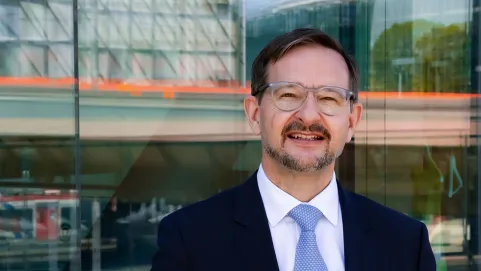 The new world order and other stories
">
The new world order and other stories
">
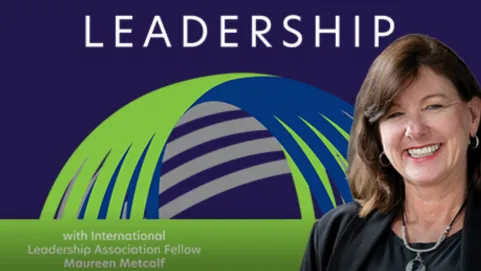 The new world order and other stories
">
The new world order and other stories
">
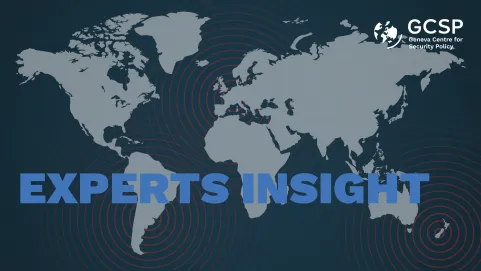 The new world order and other stories
">
The new world order and other stories
">
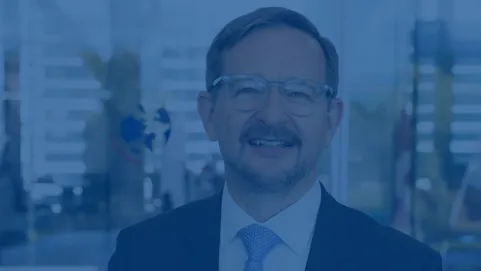 The new world order and other stories
">
The new world order and other stories
">
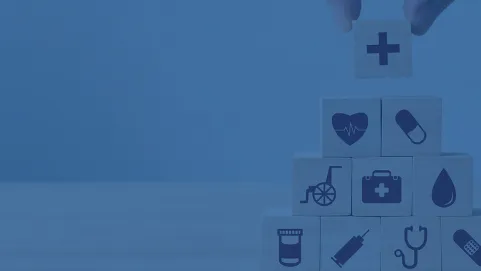 The new world order and other stories
">
The new world order and other stories
">
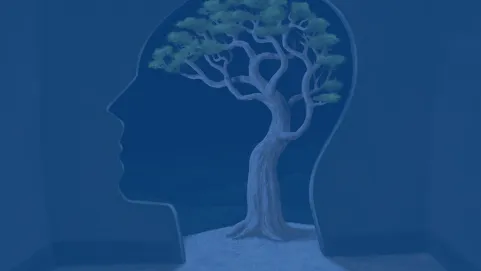 The new world order and other stories
">
The new world order and other stories
">
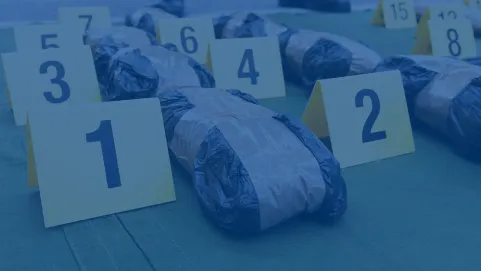 The new world order and other stories
">
The new world order and other stories
">
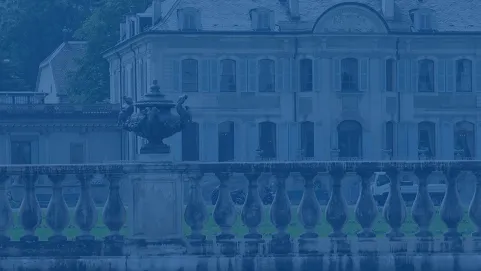 The new world order and other stories
">
The new world order and other stories
">
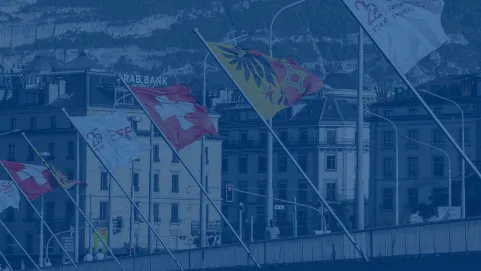 The new world order and other stories
">
The new world order and other stories
">

